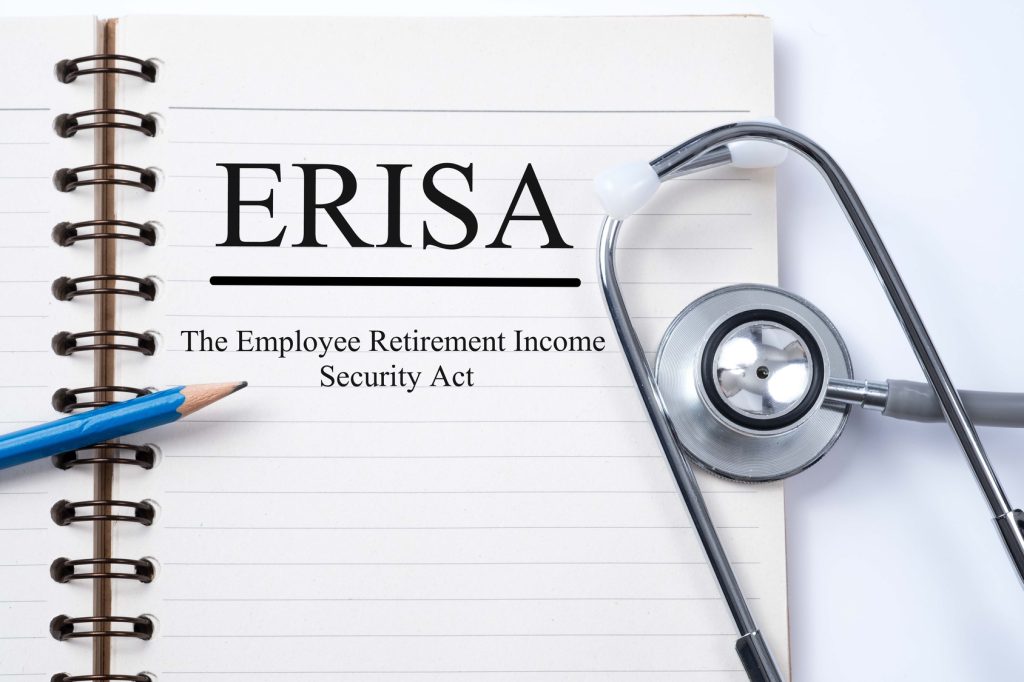I was shocked to find that I have not written a blog post since late March. Time flies when you are having fun. In any event, this post will be brief and relates to a recent case in which I was involved.

I recently wrote an article for the ABA’s Torts Insurance Practice Section (“TIPS”) Health, Disability, and Life Insurance Committee summer newsletter, which was published on Monday, July 31, 2017. A copy of the newsletter can be found here. In the article, I discussed how the Department of Labor’s (“DOL”) new ERISA disability claims regulations, which are effective for claims arising on or after January 1, 2018, can potentially have a meaningful impact on ERISA claims arising before that date. The new regulations require disability plan claim administrators, among other things, to provide claimants the opportunity to review and respond to new information or rationales for denying their claim before the administrator makes a claim determination. See 81 Fed. Reg. 92316, 92341–92342. DOL’s commentary on this new language states that this requirement really is not new: “[T]he Department has interpreted ERISA section 503 and the current Section 503 Regulation as already requiring that plans provide claimants with new or additional evidence or rationales upon request and provide them an opportunity to respond in at least certain circumstances.” 81 Fed. Reg. at 92324 (citing Saffon v. Wells Fargo & Co. Long Term Disability Plan, 511 F.3d 1206, 1215 (9th Cir. 2008)). Based on DOL’s commentary, I argued in the article that “Plans would be best served by providing participants with any new information obtained during the appeal process and the opportunity to respond to it, regardless of whether it is requested, prior to issuing a final claim determination on appeal. Plans that fail to provide this opportunity to review and respond risk being found to have denied their claimants with a full and fair review of their claims under section 503, 29 U.S.C. § 1133.”
Well, as fate would have it, the same day that the article was published, the United States District Court for the Northern District of Illinois issued an opinion agreeing with that very argument in a case in which I served as co-counsel with my friend, colleague, and lead counsel Michael Bartolic of Roberts Bartolic LLP. See Suson v. The PNC Financial Services Group, Inc. and Affiliates Long Term Disability Plan, Case No. 15-cv-10817, 2017 U.S. Dist. LEXIS 119473 (N.D. Ill. July 31, 2017). A copy of the Court’s decision can be found here.
In Suson, Plaintiff claimed that she was disabled from her regular occupation. Her claim was denied and she appealed. The Plan’s claim administrator obtained the opinion of a vocational consultant during the appeal of the denial of the Plaintiff’s claim for benefits. The vocational consultant prepared an occupational analysis dated June 4, 2015. The analysis indicated that the Plaintiff’s regular occupation is performed at a sedentary to light level of physical demand, depending on the specific work environment. Because a separate consulting expert concluded that the Plaintiff could work at a light level of exertion, the claim administrator denied her claim that day without affording her any opportunity to respond to the vocational assessment.
We argued, and the Court agreed, that denying the Plaintiff the opportunity to review and respond to the occupational analysis before issuing a final determination was arbitrary and capricious. Specifically, the Court held:
The occupational analysis was dated the same day as the letter denying [Plaintiff’s] appeal. The use of the occupational analysis constituted “new standards or expectations” that had not been previously communicated which “frustrates fair claim resolution and is evidence of arbitrary and capricious behavior.” Holmstrom, 615 F.3d at 775-76. Further, [Plaintiff] was not given the opportunity to address “the determinative issues on appeal and . . . ensure meaningful review of the denial.” Love, 574 F.3d at 396. Liberty acted arbitrarily and capriciously in receiving an occupational analysis and using that as a basis to deny [Plaintiff’s] appeal the same day, without any opportunity for [Plaintiff] to respond.
Suson, 2017 U.S. Dist. LEXIS 119473 at *37-38 (internal record citations omitted). As a result, the Plaintiff’s claim was remanded to the Plan’s claim administrator for further proceedings consistent with the Court’s opinion. Id. at *49-50.
